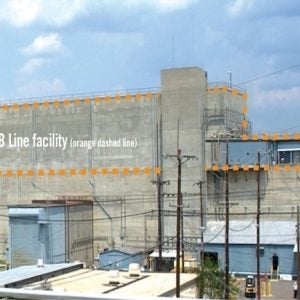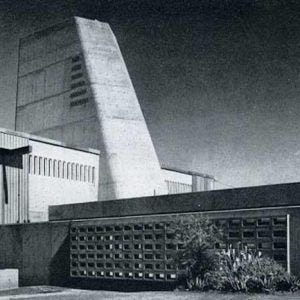Construction is under way at the Lucas Heights campus on the Australian national nuclear research and development organisation’s (ANSTO’s) new, $168m Nuclear Medicine (ANM) plant. Large areas of the building are already waterproofed and interior fittings are being installed. Work has also started on the hot cells. ANSTO is significantly closer to massively increasing production of the radioisotope molybdenum-99 (Mo-99). The plant is scheduled to commence operation in late 2016.
Meanwhile, the Canadian Nuclear Safety Commission announced that it will renew the operating licence for Ottawa-based health science company Nordion (Canada) Inc’s nuclear substance processing facility. A public hearing was held earlier this year. Nordion, a subsidiary of Sterigenics, processes radioisotopes for medical and industrial applications and supplies the Mo-99 produced at Canada’s NRU research reactor to the world market. The renewed licence will be valid from November 2015 until 31 October 2025.
Elsewhere, General Atomics (GA) is to receive funding of $9.7m from the US Department of Energy’s National Nuclear Security Administration (NNSA) to develop a domestic source of Mo-99 without using highly enriched uranium. GA’s collaborative project with the University of Missouri Research Reactor and any Nordion will receive the cost-share funding under a cooperative agreement announced by NNSA on 29 September. GA’s selective gas extraction technology uses low-enriched uranium targets to provide Mo-99 suitable for use in existing technetium-99m generators
Also in the USA, Westinghouse Electric Company and NorthStar Medical Radioisotopes have signed a memorandum of understanding to explore the production of Mo-99 in the core of commercial nuclear reactors. Westinghouse has a patent pending to produce medical radioisotopes using its Incore Instrumentation System, while NorthStar has been developing a process using enriched molybdenum-98 targets to produce Mo-99. NorthStar earlier received approval to begin routine production of Mo-99 at the University of Missouri Research Reactor (MURR) facility in Columbia, Missouri.
This should enable the company to establish a weekly production schedule and increase its output of the radioisotope. "NorthStar also will soon make a substantial investment in its operations at MURR to enable future production increases," said James Harvey, NorthStar senior vice president and chief science officer. Northstar was founded in 2006 to address the needs of the nuclear medicine market in the USA.






